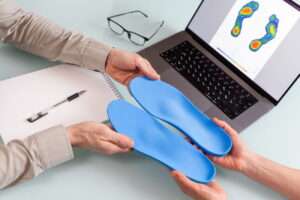Pregnancy brings numerous changes to the body, including its impact on foot health. Proper foot care helps address these changes and provide relief. Podiatrists play a key role in addressing the challenges associated with pregnancy-related foot issues. Here is more information on the role and services of podiatrists, as well as how they can assist during pregnancy to maintain foot health:
What Is a Podiatrist?
A podiatrist is a medical professional specializing in diagnosing and treating conditions of the feet and lower limbs. They are trained to manage a wide range of foot-related problems, from minor discomfort to complex structural concerns. A podiatrist has in-depth expertise in various aspects of foot health, allowing them to offer both preventive care and treatment plans tailored to individual needs.
These specialists are also skilled in handling biomechanical issues that affect walking or posture. By focusing on foot health, podiatrists help alleviate pain, enhance mobility, and improve overall quality of life. For individuals experiencing unique bodily changes, such as during pregnancy, their services can be particularly valuable.
What Services Do They Provide?
Various services are designed to prevent, diagnose, and treat foot and lower limb conditions. Clinical treatments, corrective measures, and recommendations for self-care practices are among these. Common podiatric services include the following:
- Assessment of foot pain, swelling, or discomfort
- Management of nail disorders, such as ingrown toenails or fungal infections
- Treatment of skin conditions, including corns, calluses, and cracked heels
- Orthotic consultations for custom shoe inserts to address structural issues
- Advice on proper footwear to support varying conditions
For pregnant individuals, these services help address the specific foot-related changes they may experience.
How Does Pregnancy Impact Foot Health?
Pregnancy can lead to several changes in the feet due to shifts in body weight, hormones, and fluid retention. These factors contribute to various foot-related concerns, some of which may persist without early intervention. One common issue is swelling, medically referred to as edema. Increased fluid levels and reduced circulation during pregnancy often result in swollen feet and ankles.
Another concern is the flattening of arches caused by weight gain and hormonal changes that affect ligament flexibility. This flattening can lead to overpronation, causing pain in the heels or arches. Other pregnancy-related foot issues include leg cramps and a heightened risk of developing varicose veins. These changes can make walking or standing for extended periods uncomfortable.
How Can a Podiatrist Help?
A podiatrist can provide relief from pregnancy-related foot issues. This is achieved through targeted treatments and personalized recommendations. They examine the underlying causes of foot pain or discomfort and develop plans to address both immediate symptoms and long-term needs.
Treatment options may include using orthotics to support flattened arches, relieve pressure, or correct walking patterns. Podiatrists frequently recommend footwear adjustments, fostering better arch support and superior comfort. For swelling or circulation concerns, podiatrists may suggest exercises or compression therapy to improve blood flow in the lower limbs.
Podiatrists also offer advice for maintaining healthy foot hygiene to reduce the risk of infections. They can help pregnant individuals implement strategies for staying mobile and minimizing strain during daily activities. By addressing these needs, podiatrists play a key role in mitigating foot-related issues associated with pregnancy.
Improve Your Foot Health Now
Podiatrists provide support through specialized services designed to address pregnancy-related foot changes. Whether managing swelling, pain, or alignment issues, their expertise makes sure that your feet are cared for properly at every stage. Take proactive steps toward better foot health now by consulting a podiatrist. A consultation provides insights into treatments and practices that enhance your mobility.
- When to See a Foot and Ankle Surgeon
- Top Benefits of Visiting a Vein Clinic for Early Treatment of Vein Issues
- The Intersection of Gynecology and Endometriosis Treatment
- Regenerative Orthopedics for Post-Surgery Healing
- The Role of Pain Management in Living with Chronic Pain
